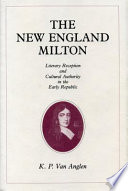 I was confirmed in this opinion, that he who would not be frustrate of his hope to write well hereafter in laudable things, ought himself to be a true poem... I was confirmed in this opinion, that he who would not be frustrate of his hope to write well hereafter in laudable things, ought himself to be a true poem...  The Monthly magazine - Page 621by Monthly literary register - 1839Full view The Monthly magazine - Page 621by Monthly literary register - 1839Full view - About this book
 | Elizabeth D. Harvey, Katharine Eisaman Maus - Literary Criticism - 1990 - 380 pages
...(889; the word "nature" recurs) that is the discovery of other authors. Thus the famous sentence, "that he who would not be frustrate of his hope to write well hereafter in laudable things, ought him selfe to be a true Poem" (890). Futurity depends upon prior textualization. But so, insistently,... | |
 | John Beebe - Philosophy - 1992 - 200 pages
...Ibid., p. 5. 47. Campbell, "Creativity," p. 142; Eco, Aesthetics of Aquinas, pp. 98-102. 48. ". . . he who would not be frustrate of his hope to write...that is, a composition and pattern of the best and honorablest things. . . ." John Milton, "An Apology for Smectymnuus," in Bush, The Portable Milton,... | |
 | John S. Tanner - Anxiety in literature - 1992 - 226 pages
...enlightenment he most desires comes only through holiness and purity. Hence, Milton's famous dictum that "he who would not be frustrate of his hope to write well hereafter in laudable things, ought him selfe to bee a true Poem" enacts a fundamentally prophetic gesture. Similarly prophetic is his... | |
 | Kevin P. Van Anglen - Literary Criticism - 1993 - 280 pages
...Apology of Smectymnuus" that Emerson quotes in the excerpt from "John Milton" just discussed (that" 'he who would not be frustrate of his hope to write...laudable things, ought himself to be a true poem; ... a composition and pattern of the best and honorablest things' "). Channing then treats these early... | |
 | Kevin Dunn - Literary Criticism - 1994 - 266 pages
...lies behind Milton's famous version of the ancient dictum that a good orator must be a good man:30 "He who would not be frustrate of his hope to write well hereafter in laudable things, ought him selfe to bee a true Poem, that is, a composition, and patterne of the best and honourablest things"... | |
 | Carl R. Woodring, James Shapiro - Literary Criticism - 2007 - 764 pages
...activity as the final preparation for a heroic poem. As he puts it in the Apology, "he who would . . . write well hereafter in laudable things, ought himself to be a true poem," presumably, in his case, by involvement in a just cause. In the Reason of Church Government Milton... | |
 | Don H. Bialostosky, Lawrence D. Needham - Language Arts & Disciplines - 1995 - 330 pages
...breeding. (DO 24) Cicero's point is not far from Milton's observation in the Apology for Smectymnuus that "he who would not be frustrate of his hope to write...that is, a composition and pattern of the best and honorablest things" (Milton 694), a remark that itself fashions the exemplary individual in rhetorical... | |
 | Ralph Waldo Emerson - Literary Collections - 1995 - 304 pages
...all the offices, both private and public, of peace and war." He declared that "he who would aspire to write well hereafter in laudable things, ought...that is, a composition and pattern of the best and honorablest things, not presuming to sing high praises of heroic men or famous cities, unless he have... | |
 | John T. Shawcross - English poetry - 1995 - 292 pages
...later in An Apology (p. 16): And long it was not after, when I was confirm'd in this opinion, that he who would not be frustrate of his hope to write well hereafter in laudable things, ought him selfe to bee a true Poem, that is, a composition, and patterne of the best and honourablest things;... | |
 | John T. Shawcross - Literary Criticism - 1995 - 500 pages
...Horace's advice. . . . Milton with great depth of judgment observes in his Apology for Smectymnuus, that he who would not be frustrate of his hope to write well in laudable things, ought himself to be a true poem, that is, a composition of the best and honorablest... | |
| |